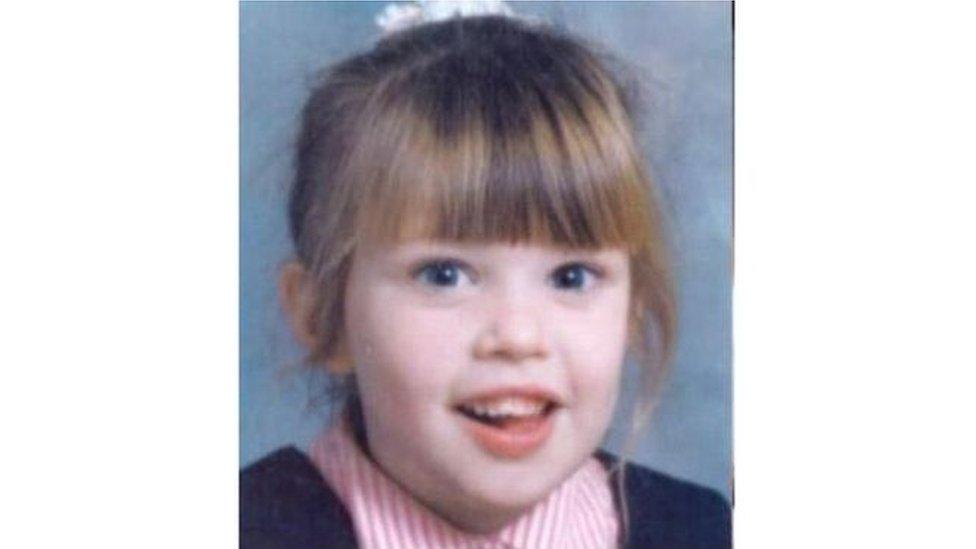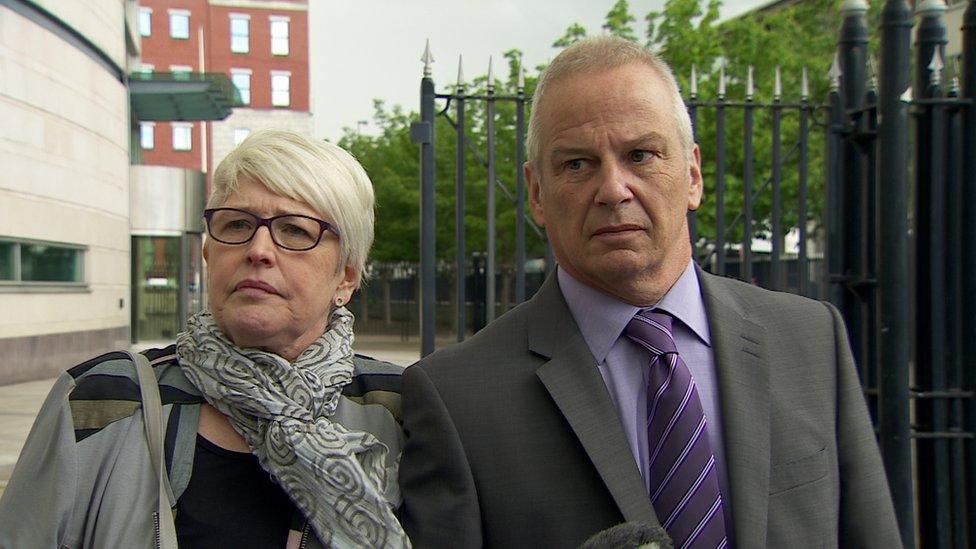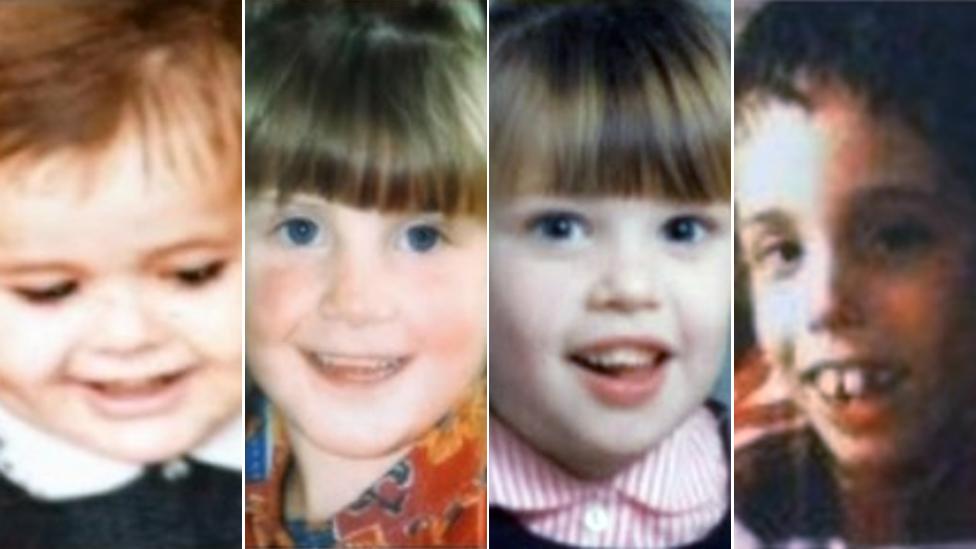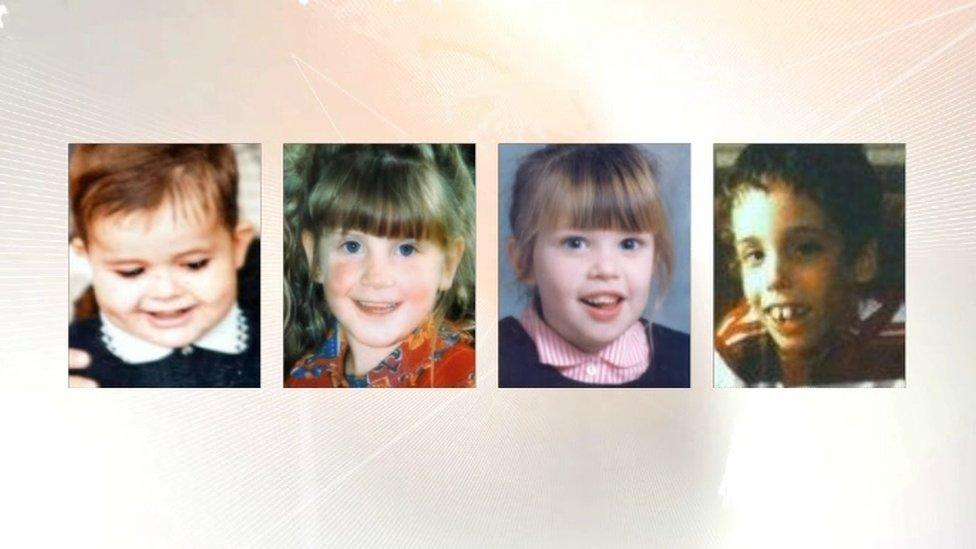Hyponatraemia inquiry: Claire Roberts inquest begins
- Published

The inquiry chairman said there had been a cover-up around Claire Roberts' death in 1996
A fresh inquest into the "avoidable" death of Claire Roberts, one of the children at the centre of the hyponatraemia inquiry, has begun.
The nine-year-old schoolgirl from east Belfast died in at the city's Royal Hospital for Sick Children in 1996.
Hyponatraemia is a disorder that occurs during a sodium shortage in the blood.
The new inquest was ordered after the chair of the hyponatraemia inquiry said there had been a cover-up to "avoid scrutiny" around Claire Roberts' death.
The 14-year inquiry, chaired by Sir John O'Hara QC, examined the treatment of five children who died in Northern Ireland hospitals between 1995 and 2003.
Sir John concluded that four of the deaths were avoidable and said some medical witnesses who were called to give evidence "had to have the truth dragged out of them".
Claire was admitted to the children's hospital two days before her death, with symptoms that included vomiting and drowsiness.
Her death was not referred to the coroner immediately, and her parents, Alan and Jennifer Roberts, had never really understood why she had died.
'Incorrect death certificates'
The couple have led a 22-year campaign seeking the truth about her death.

Claire's parents, Jennifer and Alan Roberts, are expecting to finally get answers
At the opening of proceedings in Belfast on Monday, Coroner Joe McCrisken told the court that the sole focus of the inquest would be how Claire died, by identifying and recording the medical cause of her death.
The inquest will hear from 10 expert medical witnesses over four days of hearings this week.
Among the first to take the witness stand was Prof Keith Cartwright, who told the inquest that since the public inquiry he has changed his mind about the cause of Claire's death.
He stated that while he believed that a viral infection led to her admission to hospital it did not cause her death, which had been his original view given during the inquiry.
Instead of encephalitis, which is a swelling of the brain, he said he now thought that encephalopathy, brain damage or disorder, was the more likely cause of death.
Prof Cartwright said he had come to the new conclusion having re-examined the papers and spoken to other medical experts.
Before Claire's parents entered court, her father told reporters they were expecting finally to get answers on how she died.
"We currently have two incorrect death certificates," Mr Roberts said.
"This inquest will run for four days, the coroner will listen to all the experts; all the evidence and at the end of the four days we have total confidence that the coroner will answer the question we have been asking for 22 years."
- Published8 May 2018

- Published31 January 2018
